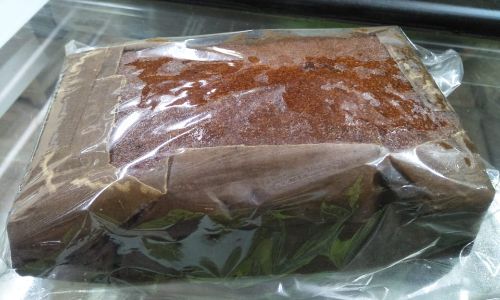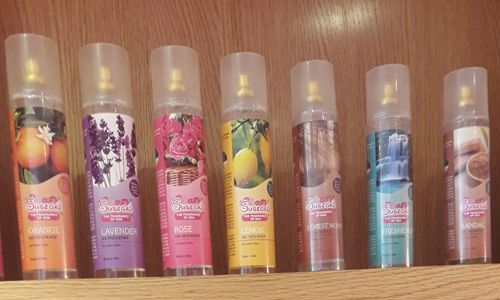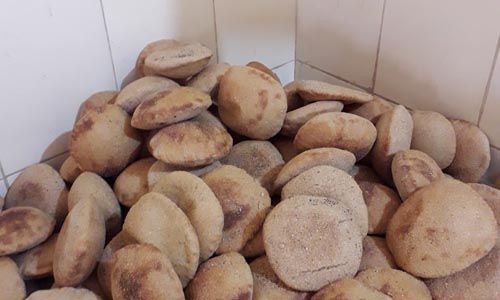While anyone who lives in Colva will point out to the polluting hotels/shacks, the consensus of the GSPCB on paper at least is that hotels have contained pollution! Yet shockingly, it found BOD of water samples collected from both upstream and downstream of the Colva creek exceeded permissible levels. Many hotels operated without consent under the Air Act, Water Act and Hazardous Waste Authorisation. No shack had GSPCB consent and all simply disposed ‘wash waste water’ in open land.
 LION ROARS
LION ROARS
March 15, 2020
Randomly forced into active mode from permanent inertia by the Colva Consumer and Civic Forum and ever since the district administration sealed 13 hotels in Colva beach on the orders of the Goa State Pollution Control Board (GSPCB) in 2014; the GSPCB finally inspected a number of hotels (including restaurants only) and beach shacks to determine the extent of pollution caused by them. While everyone who resides in Colva could actually point out to the polluting hotels/shacks, the consensus of the GSPCB on paper at least is that the hotels have contained the pollution.
During the course of five days in January 2020, two GSPCB investigators led by Vijay Kansekar contrived to investigate 52 hotels including the Sewerage & Infrastructural Development Corporation of Goa (7.5 mld sewage treatment plant), and 20 beach shacks. While it exonerated all the offenders in all the parameters, there was the occasional rap on the knuckles quite obviously for the sake of public consumption.
Yet shockingly, it found biochemical oxygen demand (BOD) of water samples collected from both upstream and downstream of the Colva creek to be exceeding the permissible levels. But these facts simply could not be suppressed! What is BOD? It ‘is the amount of dissolved oxygen needed (i.e demanded) by aerobic biological organisms to break down organic material present. BOD reduction is used as a gauge of the effectiveness of wastewater treatment plants. The BOD value is most commonly expressed in milligrams of oxygen.’ It found the BOD upstream to be 4.8mg/l and downstream to be 4.9 mg/l.
What are the comparable ‘typical values’? ‘Most pristine rivers will have a 5-day carbonaceous BOD below 1 mg/L. Moderately polluted rivers may have a BOD value in the range of 2 to 8 mg/L. Rivers may be considered severely polluted when BOD values exceed 8 mg/L.’ Characteristically GSPCB has its own ‘typical values’. If the sewage treatment plants that the hotels were forced to set up were doing their job, then how did GSPCB discover the high content of BOD. Where did it come from?
The inspection also discovered that the fecal coliform exceeded the permissible limit in both water samples: the fecal (or faecal) coliform upstream was 54000 MNP (most probable number)/100 ml and the fecal coliform downstream was 170000 MNP/100 ml. This indicates a failure of some kind in the STPs installed by the hotels.
The cover up
The GSPCB inspectors said for instance that William’s Beach Retreat had ‘consent for hotel industry with 36 rooms, however the unit is operated for 55 rooms.’ Was this the brief given to them? That the hotel generated dry waste of 200 kg/month and wet waste of 400 kg/month, both ‘collected’ by a ‘scrap dealer’ and ‘piggery.’ While it studiously gave the name of each hotel, restaurant and shack representative in attendance on the day of the inspection including his/her mobile number, it failed to mention even a single name of a scrap dealer or piggery in the case of any of the 52 hotels; all of whom made the same claim. Just as it said in all 52 individual reports that: ‘Final treated water sample from STP was collected and analysed … indicates that all parameters are well within the prescribed limits.’
The report of Longuinhos Beach Resort revealed the hotel operated a spa without the consent of GSPCB. It found the BOD level of The Golden Crown Hotel & Spa to be 40 mg/l against the permissible level of 30 mg/l. In the case of Reliance Sea Mist Co-Operative Housing Maintenance Society, the report said GSPCB did not give it consent to operate under the Air Act, Water Act and Hazardous Waste Authorisation, though it applied for it on April 17, 2013! This residential complex with 44 apartments claimed it generated 1 kg/day of dry waste and wet waste of 2 kg/day! Its BOD was 47.6 mg/l against GSPCB’s ‘permissible limit’ of 30 mg/l.
In the case of the Colva Pearl Co-Operative Housing Maintenance Society Ltd., consent for the same act expired on December 26, 2016. Its BOD was a high of 69.7 mg/l. According to the GSPCB report, Williams Beach Retreat, Graciano Cottages, Jymis Cottages, Vincy Beach Resort, Vailankanni Cottages, Vernekar bar and restaurant, Cajis Place bar and restaurant, Portofino bar and restaurant, Fishland bar and restaurant, Goodman bar and restaurant, Jimmy’s Corner, Kolkata hotel and restaurant, Collin Mark bar and restaurant, Radha Krishna restaurant, Lactancia bar and restaurant, Little Tanishka, Kia’s Café, Atul Cafe, Sukhsgar Beach Resort and Sam’s Guest House, all operated without consent under the Air Act, Water Act and Hazardous Waste Authorisation.
No shack had this GSPCB consent and all of them simply disposed their ‘wash waste water’ in open land.
The hotels whose STP samples failed are Colmar Beach Resort - it had a BOD high of 72.4 mg/l against the permissible 30 mg/l, Sea Queen Beach Resort – 76 mg/l, Golden Crown Hotel and Spa – 40 mg/l and Salcete Beach Resort – a highest of 144.4 mg/l. These hotels including Reliance Sea Mist (47.6 mg/l) and Colva Pearl (69.7 mg/l) were ordered to rectify their STPs and submit compliance reports.
Footnote: Sindhudurg airport to be operational from May 1
So said Maharashtra Chief Minister Uddhav Thackeray recently. And this is what I have always said will mark the end of Goa’s Mopa airport project, less than 30 kms away; because by the time work even starts on Mopa, the Chipi airport will be up and flying. Thackeray made the announcement during a discussion in the Legislative Assembly about the development of coastal Konkan. Without making a direct reference to the Nanar refinery project in Ratnagiri, Thackeray said there was no need to bring projects that adversely affect the ecology and environment of the region. The Rs 3 lakh crore oil refinery project met with strong opposition from locals. “You don’t become anti-development just because you oppose such a project,” something Goa’s Chief Minister Pramod Sawant should abide by. Maharashtra also plans to launch a submarine tour of the Konkan coast and turn sea forts of the region into tourist attractions. Another red flag looming for Sawant?



